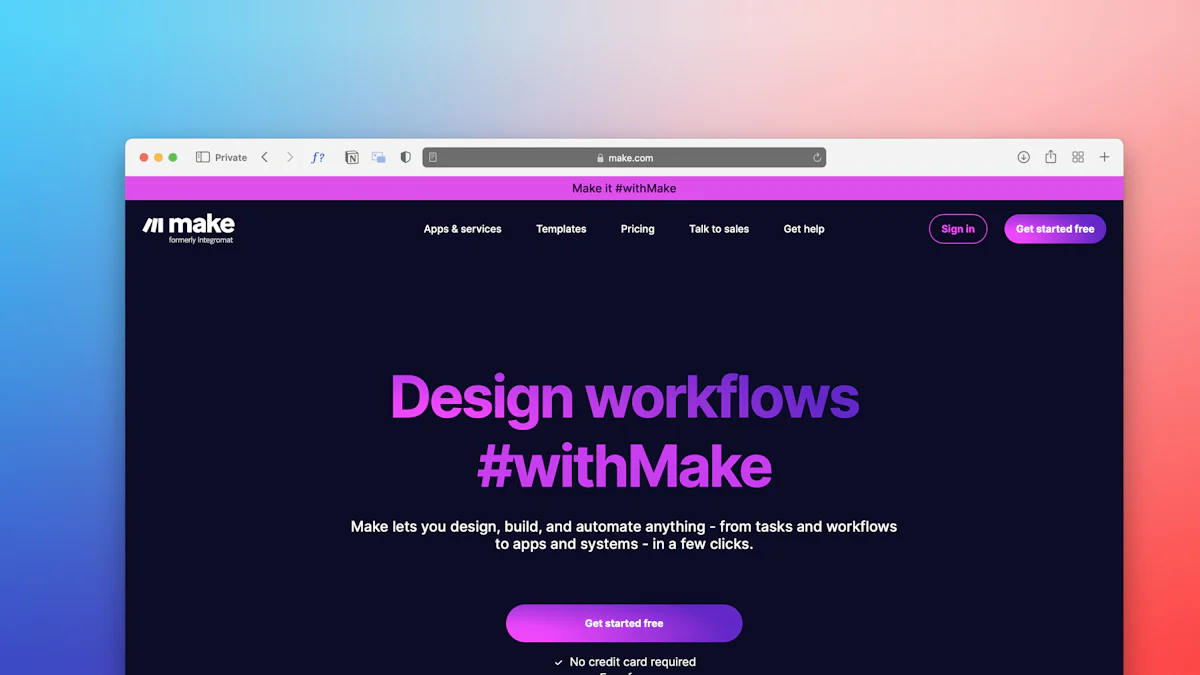How to Choose the Best AI Automation Agency

AI automation has become crucial for modern businesses. Over 73% of U.S. companies use AI in some aspect of their operations. AI automation agencies play a vital role in this transformation. These agencies help businesses implement AI solutions to automate tasks and processes, enhancing efficiency and driving innovation. The demand for AI automation services continues to rise, with market growth expected to reach $126 billion by 2025. This blog aims to guide you in selecting the best AI automation agency to meet your business needs.
Understanding AI Automation

What is AI Automation?
Definition and key concepts
AI automation uses artificial intelligence to perform tasks that typically require human intervention. These tasks include data analysis, decision-making, and repetitive processes. AI automation employs machine learning algorithms, natural language processing, and robotic process automation (RPA). Businesses use AI automation to enhance efficiency and reduce operational costs.
Benefits of AI automation
AI automation offers numerous benefits. Businesses can optimize workflows and improve productivity by automating repetitive tasks. AI automation agencies help companies streamline processes and manage data effectively. This leads to cost reduction and increased efficiency. AI technology can increase business productivity by 40%. Additionally, AI automation enhances safety protocols and promotes sustainable practices.
Types of AI Automation Solutions
Process automation
Process automation focuses on automating routine tasks. These tasks include data entry, invoice processing, and customer service interactions. AI automation agencies provide solutions to optimize these processes. Businesses can save time and allocate resources to more strategic activities.
Cognitive automation
Cognitive automation involves using AI to simulate human thought processes. This includes understanding natural language, recognizing patterns, and making decisions. Cognitive automation enhances decision-making and problem-solving capabilities. Businesses can leverage cognitive automation to gain insights and improve operations.
Robotic process automation (RPA)
Robotic process automation (RPA) uses software robots to perform repetitive tasks. These tasks include data extraction, form filling, and report generation. RPA reduces human error and increases accuracy. AI automation agencies implement RPA to help businesses achieve higher efficiency and lower operational costs.
Identifying Your Business Needs
Assessing Current Processes
Identifying areas for improvement
Evaluate your current business processes. Look for tasks that consume a lot of time and resources. Identify repetitive tasks that can benefit from automation. Consider areas where human error frequently occurs. Pinpoint processes that slow down overall productivity. Recognize bottlenecks that hinder workflow efficiency.
Setting clear objectives
Define specific goals for AI automation. Establish what you want to achieve with automation. Set measurable targets to track progress. Determine key performance indicators (KPIs) to evaluate success. Align objectives with your business strategy. Ensure that goals are realistic and achievable.
Budget Considerations
Determining your budget
Calculate the funds available for AI automation. Consider both initial investment and ongoing costs. Allocate resources based on priority and potential impact. Factor in expenses for software, hardware, and training. Plan for future upgrades and maintenance. Ensure that the budget aligns with your financial capacity.
Cost vs. ROI analysis
Analyze the return on investment (ROI) for AI automation. Compare the costs of implementation with expected benefits. Evaluate potential savings in time and labor. Assess improvements in productivity and efficiency. Consider long-term gains versus short-term expenses. Make informed decisions to maximize ROI.
Evaluating Potential AI Automation Agencies

Research and Shortlisting
Online research and reviews
Start with online research to find potential AI automation agencies. Look for agencies with a strong online presence. Check their websites for detailed information about their services. Read reviews on platforms like Google and Trustpilot. Look for patterns in customer feedback. Positive reviews often indicate reliable service. Negative reviews can highlight potential issues. Use this information to create a shortlist of agencies.
Recommendations and referrals
Ask for recommendations from industry peers. Colleagues and business partners can provide valuable insights. Referrals often come from trusted sources. This increases the likelihood of finding a reputable agency. Consider joining industry forums and online communities. These platforms can offer additional recommendations. Compile a list of agencies based on these referrals.
Key Criteria for Evaluation
Expertise and experience
Evaluate the expertise and experience of each AI automation agency. Look for agencies with a proven track record. Experience in your specific industry is a plus. An agency with diverse project experience can offer versatile solutions. Check their portfolio for past projects. Look for case studies that demonstrate successful implementations. Agencies with extensive experience can better understand your needs.
Technology and tools used
Assess the technology and tools used by the AI automation agency. Ensure they use cutting-edge AI technologies. Tools like Zapier, BotPress, and Stack AI are essential. Advanced tools can provide more efficient solutions. Ask about their approach to integrating these tools into existing workflows. The right technology can significantly impact the success of your AI automation efforts.
Client testimonials and case studies
Review client testimonials and case studies. Testimonials provide firsthand accounts of client experiences. For example, John Smith from Los Angeles praised the AAA course:
"The AAA course transformed my business! I now have the tools and strategies to effectively leverage AI automation in my marketing agency."
Case studies offer detailed examples of past projects. Look for measurable outcomes and success stories. Positive testimonials and successful case studies indicate a reliable agency.
Initial Consultations
Questions to ask
Prepare a list of questions for initial consultations. Ask about their approach to AI automation. Inquire about their experience with similar projects. Request information on the tools and technologies they use. Ask for examples of past successes. Discuss their process for understanding client needs. These questions help gauge their suitability for your business.
Assessing their understanding of your needs
Evaluate how well the agency understands your needs. Explain your business processes and objectives. Assess their ability to identify areas for improvement. Look for agencies that offer tailored solutions. Their responses should reflect a deep understanding of your industry. An agency that comprehends your needs can provide more effective solutions.
Making the Final Decision
Comparing Proposals
Analyzing the scope of work
Examine each proposal's scope of work. Ensure that the agency outlines detailed tasks and deliverables. Verify that the proposal aligns with your business objectives. Look for clarity in the project timeline and milestones. Confirm that the agency includes all necessary services.
Comparing costs and timelines
Compare the costs and timelines of each proposal. Evaluate the pricing structure for transparency. Check if the costs cover all aspects of the project. Assess the proposed timelines for feasibility. Ensure that the timelines match your business needs. Consider the value offered relative to the price.
Trial Periods and Pilot Projects
Importance of a trial period
A trial period provides a risk-free way to evaluate the agency. Use the trial to assess the agency's capabilities. Monitor how well the agency integrates AI solutions into your processes. Evaluate the agency's responsiveness and support during the trial. A successful trial can build confidence in the agency's expertise.
Evaluating the pilot project's success
Measure the success of the pilot project against set objectives. Analyze improvements in efficiency and productivity. Assess the quality and accuracy of the automated processes. Gather feedback from your team on the implementation. Use these insights to make an informed final decision.
Choosing the right AI automation agency starts with defining your needs. Evaluate your current processes and set clear objectives. Research agencies by assessing their technical expertise, service offerings, and client reviews. Initial consultations help gauge their understanding of your requirements. Compare proposals based on scope, costs, and timelines. Conduct trial periods to ensure compatibility. Selecting the best agency will enhance efficiency and drive innovation. Take the next step and begin your search for the ideal AI automation partner today.
